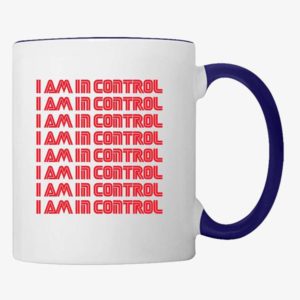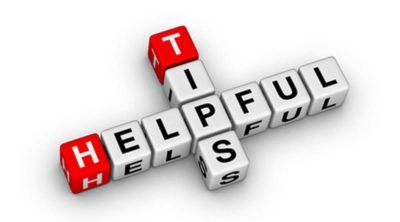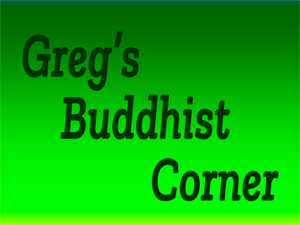Ending dependency on sleeping pills
By Greg Suffanti
QFWF, March 2019
Did you know that approximately 1 in 10 people in the Netherlands regularly use prescription sleeping pills to aid their sleeping?
And from this sizable group, “a majority are long-term users, despite recommendations in the guide-lines for short-term use[1].”
Even more problematical for an ageing population is the fact that “discontinuation of use is found to be more difficult with ageing, particularly after 45 years[2].”
In the US, where sleeping pill usage is comparable to that in the Netherlands, researchers concluded in a major study that “sleeping pills may have been associated with 320,000–507,000 extra deaths in the US that year (2010)[3].”
If you or someone you know is struggling with a sleeping pill addiction, please read on.
Addiction is a life-killer

It was after a stroke in 2013 that I developed problems sleeping more than 4 or 5 hours a night. I have a very good and very open relationship with my GP (huisarts), Dr. Hanneke Blanksma, whom I consulted nearly every month for two years after the stroke, as I struggled to put my life together again after it seemed to fall hopelessly apart.
Sometime in 2014 Dr. Blanksma suggested I try taking 0.5 milligrams of Lormetazepam every other night as a way of sleeping better and not becoming addicted, either mentally or physically, to this powerful drug.
This was important to me because I have chronic illnesses, and have years of experience with addictive drugs like Oxycontin, a highly addictive synthetic opiate.
It took years of quitting and then starting again before I finally stopped. These were years in which I labeled myself a loser for being sick, and a loser for being an addict.
I felt hopeless, helpless and dirty. As I saw ever more clearly the price I was paying, and how these drugs were keeping me from my own life, I finally determined to break free … “come hell or high water” as we say in America.
It was not easy, but nothing is worth the cost of addiction. It’s a life-killer.
I’m not addicted because I take the drug as prescribed

By the summer of 2015 it was determined that I suffer from extreme sleep apnea (I had the stroke in my sleep), and from that time on I began using a CPAP device for breathing at night.
I never considered stopping use of the Lormatazepam.
This tiny, white-dot of a pill was my guarantee of a good night’s sleep. Besides, I wasn’t addicted because I took the drug as prescribed …. Or so I believed.
Dr. Blanksma would ask me a couple of times a year if I wanted to discontinue the Lormetazepam, to which I answered uniformly,
“are you kidding? No! After years of problems I finally feel stable…. Finally!”
End of discussion. Of course, my tolerance kept building, and thus so too did my dosage follow suit, so that by 2017 I was taking 2 milligrams every other night instead of the 0.5. Also, as anyone who takes these drugs will tell you, they no longer even seemed to do anything …. Or so I believed.
“I am in control, therefore there is no problem”
You may logically ask,
“why even take the drug if you don’t feel it?”

That’s easy. I would occasionally miss a “sleeping pill night”, and never noticed that I slept any different. However, stopping completely was an entirely different matter. I freely admitted to being psychologically addicted, but reasoned, “who cares?”
Compared to a drug like Oxycontin, the Lormetazepam seemed like child’s play. I did not however ask for a dose above the 2mg because this was my psychological limit. It’s very easy to feel in control when you determine when and at what dose you take the drug. I am in control, therefore there is no problem. Or so I believed.
By 2018, the sleeping pills were so ineffective that I could take them and stay awake for hours afterward. It would take me a full 2 hours to wake up each morning, no matter whether I was taking the sleeping pills or not.
I naively was not making the connection that these short-acting, small white pills with a pleasant taste were taking over my conscious world. The heaviness in my head was so extreme in the mornings I began to wonder if there was something wrong with me.
I went to Dr. Blanksma in December of last year with vague complaints of just not feeling well. I determined to return early in the new year to discuss ‘the problem’ further.
The happy ending comes after you stop
Then, a funny thing happened. The night before my appointment with Dr. Blanksma in January of this year, I asked myself again why I was taking the Lormetazepam if I couldn’t feel it and had no more troubles sleeping a full night? Isn’t it possible that this heaviness I’m feeling is from the sleeping pills?
“Good heavens this is stupid,”
I said to myself, waking instantly and recognizing the stupor of addiction, realizing that after 4 years I needed to end this story as quickly as possible.
It wasn’t only possible the heaviness I was feeling was due to the sleeping pills … it was probable. I’d been down this road before with the Oxycontin. The happy ending comes after you stop.
There was a look of surprise and delight on Dr. Blanksma’s face when I announced the next morning that I wanted to stop the sleeping pills.
“Why not if I don’t need them?”
I enthusiastically announced.
Then, there was a look of surprise, but not delight on my face, as Dr. Blanksma explained that I’d probably experience withdrawal for the next few weeks.
That came as an unwelcome surprise, but I was undaunted in my determination, and a part of me was curious as to how I’d feel after the unpleasantness of withdrawal was behind me.
Dr. Blanksma suggested I gradually taper the dose down, but, after a week or so of tapering the dose down, I got a couple of thunderous headaches after taking my mini-dose of Lormetazepam and decided to just go cold turkey as they say in the world of addiction.
My life is my own again!
Over the course of the next month I did feel quite awful at times … sometimes like I wanted to jump out of my skin. I felt an inability to relax and felt shaky most of the time.
Everything seemed like a chore and pleasure seemed far out of reach. My mind felt unable to focus most of the time, and I tried to be gentle with myself in my acceptance of these temporary circumstances.
However, life went on. I knew Dr. Blanksma was there if I needed her, and I told a couple of friends what I was going through. As awful as I felt, I fortunately did not have problems sleeping, which is a possible side-effect from stoppage of this class of drugs called benzodiazepines. There were many instances where I said to myself,
“wow, this is unpleasant … no wonder people start again or even seek professional help.”
These more difficult moments passed, and I busied myself with fulfilling obligations, walking, and sometimes doing as little as absolutely possible.
The first two weeks were the most unpleasant, and after 4 or 5 weeks I felt free again.
Now, I wake in the morning and feel awake. My body and mind feel lighter and freer. My life is my own again and the few weeks of discomfort are a fading memory. My experiences with withdrawal from other drugs helped me to see and recognize what I was going through at that particular moment and to not give in to the hallucination that I’m not okay.
“I am always okay”,
I frequently reminded myself.
You need to remind yourself that what you feel is temporary, and that you are capable, like millions of others, of liberating yourself from the prison of addiction. The firmer your conviction, the easier it will be to stop.
Stopping an addiction is an act of self-love
I’ve made a list of 10 things I think might be helpful for anyone wanting to stop their use of an addictive drug.
Dr. Blanksma asked me to write this piece because she said she had many patients who couldn’t end this cycle of taking sleeping pills. This is unfortunate.
I hope that something I’ve written will help someone to decide to take their life back again. Stopping an addiction is an act of self-love. Also, all those around you will benefit as well. There is every reason in the world to protect your precious self. Your life may even depend on it.
You are worth it!
10 Tips for ending your addiction

- Admit there is a problem … try to honest with yourself about what you are doing and how this behavior affects your life. Why hide from the truth? Ask: “what am I afraid of?”
- Make a list of all the negative aspects of your addiction, like not feeling free to choose to stop.
- Make a list of the positive changes you want in your life, like being in complete control of your life again.
- Seek help. Why do it alone? Support is essential for success.
- Tell others about what you are doing … family, friends, co-workers. It helps to share with those who care about you and who can inspire you to achieve your goal.
- Pick a date and stick to it ‘come hell or high water’.
- In difficult moments, remind yourself that what you are doing is Try also reminding yourself that these difficult moments will pass, but the freedom you will have gained is permanent. Approach yourself like a wise mother with a sick child. Like a mantra, repeat, “I am always okay, I am always okay.”
See through the sometimes nasty tricks of the magician-like mind. - Try becoming an expert so that you’ll see, “hey, others are just like me,” and be inspired to follow through with your goal of stopping. You are totally not alone with this problem.
- Keep a journal so that you’ll see in your own words what you’re going through, and after a short period, you’ll see also that you’re going in the right direction. For most of us, the first 2 weeks are the most challenging.
- Try to keep busy and distract yourself. Or, try doing nothing at all. Experiment and see what works for you at any given moment.
I’m a huge fan of walking, and find just stepping outside and moving gives me a more positive feeling. Being quietly alone at home helped me as well.
Every hour of every day is different. Be flexible and responsive to your well-being at all times. Love yourself as best you can and feel good about the decision you’ve made, knowing there will be some bumps on this journey to freedom.
It’s worth it!
Notes
[1] www.dutchnews.nl
[2] www.ncbi.nlm.nih.gov
[3] www.theguardian.com/science/2012/feb/27/sleeping-pills-increase-risk-death-study
[4] Source: spring
[5] Source: tiny, white-dot of a pill
[6] Source: I am in control
[7] Source: Helpful tips










